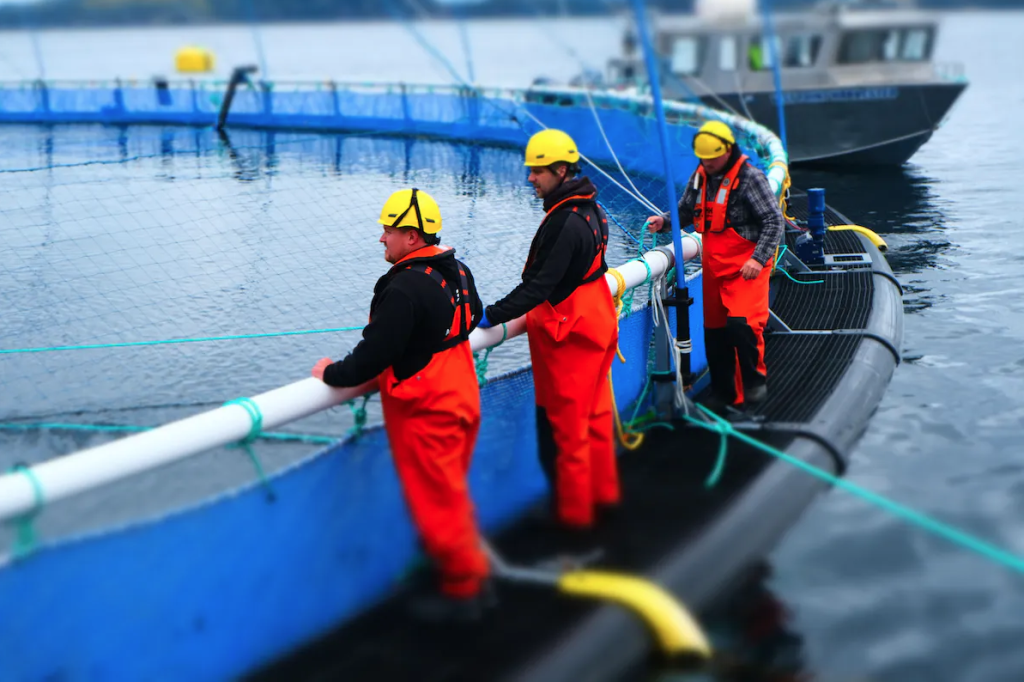Grieg Q1 profits hit by biological problems

Norwegian and Canadian salmon farmer Grieg Seafood has reported a near £7m drop in operating profits for 2023.
They were pushed down in large part by serious biological problems in Finnmark, which included the Spiro parasite and jellyfish attacks which plagued several Norwegian salmon companies in recent months.
These together with low sea temperatures affected mortality, fish health, fish welfare and quality.
Grieg CEO Andreas Kvame said: “I am not satisfied with the fish welfare situation in the quarter.”
Grieg produced a 2023 harvest of 21,075 tonnes, up by around 5,700 tonnes on 2022.
The operational EBIT was NOK 292 million (£21.4m) compared with NOK 385 million (£28m) in Q1 last year. The operational EBIT per kilo was NOK 13.8 against NOK 25.1 in 2023.
The group expects a 2024 harvest of 81,000 tonnes.
It was not all bad news from Norway with Rogaland delivering its second best quarterly results.
And the company’s Canadian operations saw the successfully completed harvest of the first generation in Newfoundland, with a high share of superior quality fish.
There is also an ongoing process to identify long-term partners to take part in the development of Canadian operations.
CEO Kvame told shareholders that during the first quarter of 2024, Grieg experienced progress after a challenging 2023.
He said: “The main driver of the improvement was a strong biological performance in Rogaland, which reduced costs and increased price achievement.
“The underlying biology is improving in all of our farming regions. Our Finnmark operations were affected by historical biological challenges, including the Spiro parasite and string jelly fish.
“Coupled with low seawater temperatures, the challenges impacted survival, fish health, welfare and quality. I am not satisfied with the fish welfare situation during the quarter.”
He said Grieg continued to implement a variety of improvement measures, including a new vaccine against winter ulcers, a UV filter against Spiro and sea lice treatment capacity with improved welfare.
“We are also making changes to our production planning and reducing biological risk as our post-smolt strategy is gradually rolled out in our regions. Because of our long production cycles it takes time to see the results of our measures.”
“During 2024 and especially next winter, however, we expect significant improvements. In Canada, we accomplished a significant milestone with the completion of our first harvest in Newfoundland.
“We have proven that it is possible to farm salmon with good welfare, low impact and high quality in Placentia Bay. This is strengthening our faith in Newfoundland as a future, robust farming region, which will generate jobs and shared value to the surrounding rural communities.”
He concluded: “However, significant investments will be needed to develop the Canadian operations, and the search for long-term partners is ongoing.”

